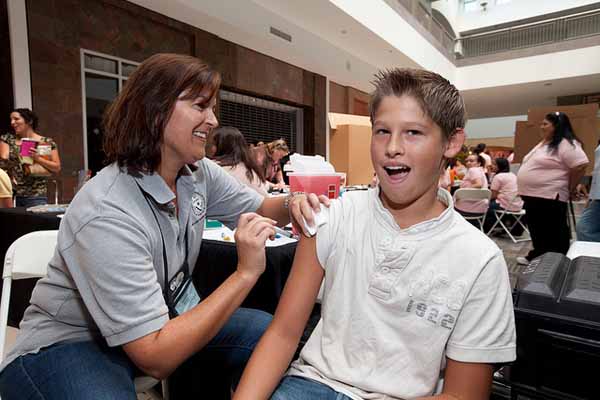
Pfizer’s pediatric COVID-19 vaccine recently authorized for 5- to 11-year-olds is a different version from the drugmaker’s vaccine for adolescents and adults that comes with different storage and dosage requirements, the Texas Department of State Health Services (DSHS) is cautioning pediatric vaccinators.
To help physicians and other vaccine administrators distinguish the products, the agency highlights several differing characteristics, the most visible being that vials of the pediatric version for children aged 5 to 11 are topped with an orange cap, instead of the purple cap used for the vaccine for patients ages 12 and up.
The Food and Drug Administration (FDA) has released fact sheets on the pediatric, orange-cap vaccine for health care professionals and for recipients and caregivers. Vaccine administrators must give the recipient/caregiver fact sheet before vaccination, and oral or written consent from parents is required for vaccination of minors, although the parent or guardian does not have to be present during the vaccination.
Other characteristics of the pediatric vaccine newly authorized by FDA include:
- The shots can be stored under refrigerated temperatures for up to 10 weeks, about six weeks longer than the adolescent/adult formulation.
- Vaccinators can order in pack sizes as large as 100 doses and place orders as small as 10 doses, the equivalent of one vial.
- Pediatric shots are administered in two doses three weeks apart with 0.2 mL per dose, as opposed to 0.3 mL per dose for the two-dose adolescent/adult vaccine.
DSHS has posted a chart summarizing both formulations of the Pfizer vaccine.
Last Updated On
November 12, 2021
Originally Published On
November 12, 2021